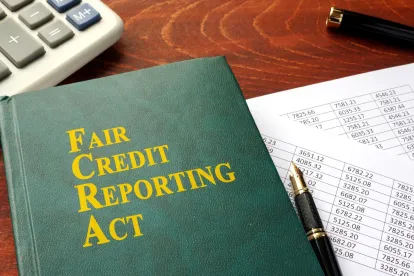The U.S. District Court for the District of Maryland recently dismissed FCRA claims advanced by a borrower on a charged-off vehicular loan for lack of standing in Deysi Arriaza v. Experian Information Solutions, Inc., et al., Civil No. 20-3073, 2021 WL 1019937 (D. Md, Mar. 17, 2021). After the plaintiff admittedly defaulted on her loan, Toyota Motor Credit Corporation and Experian reported that the balance of her loan had been charged off, but that a lesser amount was past due. The plaintiff disputed this reporting claiming it was inconsistent with Metro 2 guidelines. Specifically, the plaintiff claimed that Metro 2 guidelines required creditors “to equalize the past-due and total balance on a charged-off account” and that she was injured by the reporting of a lesser past due balance than the amount reported as charged off.
In rejecting the plaintiff’s FCRA claims for lack of standing, Chief Judge Bredar of the U.S. District Court for the District of Maryland questioned the plaintiff’s contention that the reporting of a lesser past due amount than the amount of the charge-off could negatively impact the plaintiff’s credit score. In so holding, the court in Arriaza reasoned that, even if such reporting was inconsistent with Metro 2 guidelines, the plaintiff had failed to allege a plausible concrete injury to establish standing, citing the recent dismissal of similar suits by two New York district judges. See e.g., Cohen v. Experian Info. Sols., Inc., Civ. No. BMC-20-3678, 2021 WL 413494, at *2 (E.D.N.Y. Feb. 5, 2021) and Artemov v. TransUnion, LLC, Civ. No. BMC-20-1892, 2020 WL 5211068 (E.D.N.Y. Sept. 1, 2020). Further, the Court emphasized that, in enacting the FCRA, Congress did not intend to preclude all inaccuracies in credit reporting, but only those inaccuracies that are either “patently incorrect” or “misleading in such a way and to such an extent that [they] can be expected” to adversely affect credit decisions.
PRACTICE NOTE: Given the recent wave of FCRA cases predicted on allegations of credit reporting inconsistent with Metro 2 guidelines, the analysis in this case reminds us that a mere failure to report a debt consistent with industry guidance is not itself sufficient to establish standing under Article III if a plaintiff cannot plausibly allege that the reporting of a debt could reasonably be expected to negatively impact the plaintiff’s creditworthiness. Moreover, practitioners should be mindful to look behind conclusory allegations which characterize reporting as inconsistent with Metro 2 guidelines. While not part of the holding in Arriaza due to its dismissal for lack of standing, the CDIA’s 2020 Credit Reporting Research Guide suggests that both the original charge-off amount and the amount past due should be reported unless the debt is deemed to be fully settled or paid.



 />i
/>i
